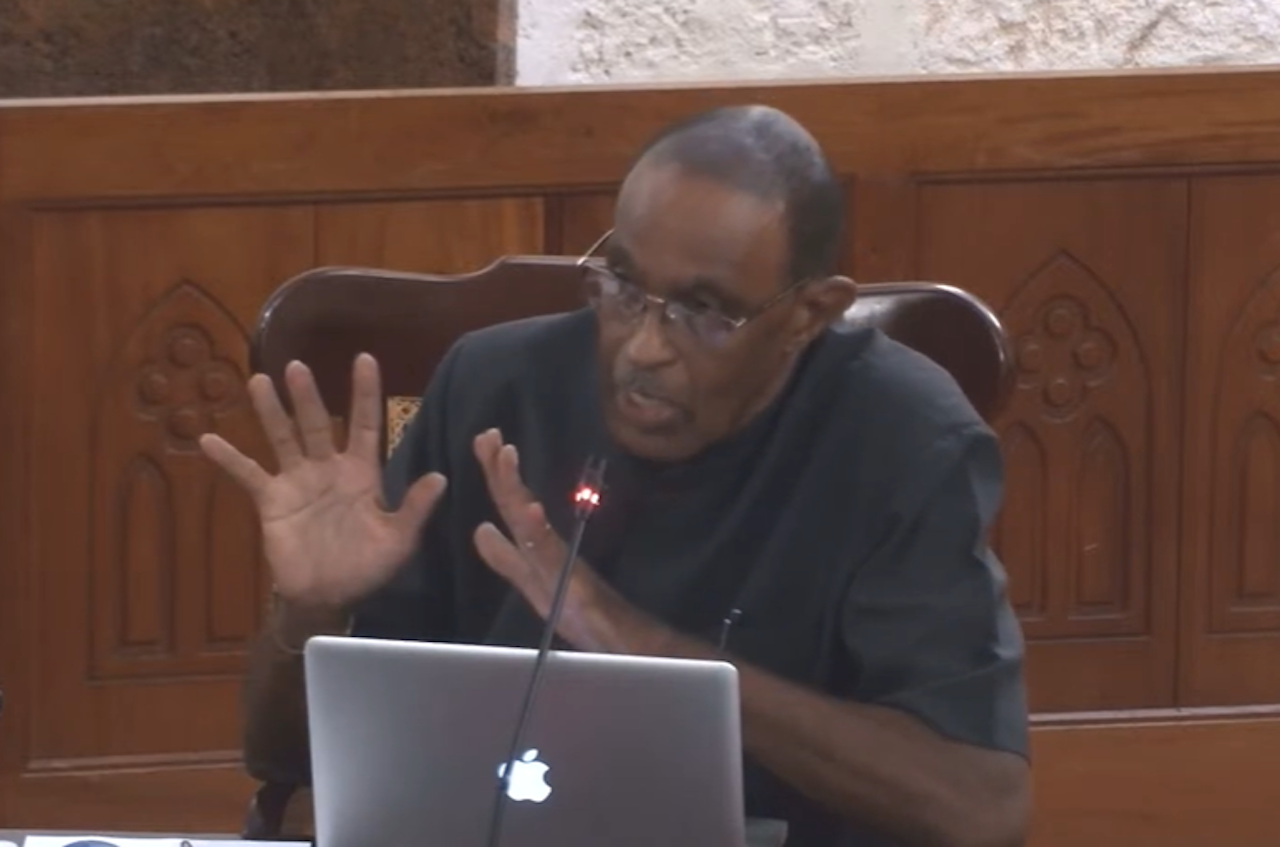Analysis of Barbados Cybercrime Legislation by Reverend Ferdinand Nicholls Raises Concerns on Free Speech Rights

May 7, 2024
Criticism of government cybercrime legislation raises concerns over potential infringement on free speech and expression. Broad definitions and harsh penalties under scrutiny by critics and religious leaders.
A critic of the government’s controversial cybercrime legislation has suggested it could infringe on fundamental freedoms, including free speech and expression.
Reverend Ferdinand Nicholls told the Joint Select Committee examining the Cybercrime Bill and the Mutual Assistance in Criminal Matters (Amendment) Bill that while he acknowledged the need to safeguard against cyber threats, there was also a need for a balanced approach that respects civil liberties.
“I am not a lawyer or a cybercrime expert,” Reverend Nicholls said. “However, there are concerns I wish to address, particularly regarding certain sections of the Bill that could criminalise the actions of Barbadians and threaten their rights to free speech and expression.”
The contentious sections of the Bill, specifically clauses 19 through 23, have prompted a strong reaction. Critics argue that the proposed legislation may lead to a chilling effect on free speech, potentially criminalising speech or expression that some might find offensive or disagreeable.
The cleric also expressed concerns about the broad definitions of cyberbullying and the potential for overly harsh penalties, including fines of up to $70 000 and seven-year prison sentences.
Such broad definitions could lead to challenges in interpretation and legislative overreach, he warned.
“The Bill uses language that combines words open to being deemed as vague or overly broad, expanding the law beyond what is necessary,” he said.
Religious leaders have also expressed concerns about the Bill’s impact on religious expression. Reverend Nicholls also highlighted the importance of religious freedom in Barbados and cited the National Anthem, which praises the divine guidance over the nation for 300 years.
Moreover, he reminded the committee of the administration’s vow to uphold free speech and civil liberties.
“This administration was elected based on that solemn promise,” Reverend Nicholls said, emphasising the need for transparency and accountability in governance.
He further noted that the debate over the Cybercrime Bill comes in the wake of global scrutiny of government actions during the pandemic, leading to diminished trust in government institutions.
“Trust is at a very low level,” the cleric observed, as he called for greater transparency from the government. (RG)


